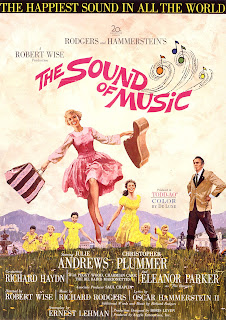Détresse et Charité [The Christmas Angel] (1904)
.jpg)
I'm including both the French and English titles above, but it's actually more accurate to say I've seen The Christmas Angel, as the French version contained a very different ending. The original resolution sounds more interesting, but I haven't been able to find it and I'm guessing the sanitized, happy US version is the only one that survived (I should probably just be grateful any version of this survived more or less intact). The movie is around nine minutes long, and it was made by legendary French director, illusionist, inventor, and probably a whole host of other things, Georges Méliès. The film starts in the home of a poor family in winter around the holidays. The mother's sick and the father's tending to her. Also, there's a hole in their ceiling that snow's pouring through, and a guy I'm assuming they owe money to comes in and argues with the father. At any rate, their only hope seems to be their daughter, who goes out begging for charit

.jpg)

.jpg)
.jpg)
.jpg)
%20%5BRevisited%5D.jpg)
.jpg)
.jpg)
.jpg)